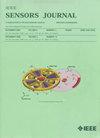Conditional Feature Generative Adversarial Network for Fault Diagnosis of Axial Piston Pump
IF 4.3
2区 综合性期刊
Q1 ENGINEERING, ELECTRICAL & ELECTRONIC
引用次数: 0
Abstract
A conditional feature generative adversarial network (CFGAN) for small-sample data augmentation was proposed in this article to address the issue of the scarcity of fault samples in axial piston pump fault diagnosis. With 1-D data as input, a feature extractor was constructed in this method to extract features, bringing about an original deep feature dataset. Subsequently, this dataset was employed to train the generation model for enhancing the training efficiency. Additionally, the Wasserstein distance was introduced to improve the stability of the model training. Conditional labels were added to the inputs of the generator and discriminator to guide the model’s training and generate high-quality feature datasets. Afterward, the effectiveness of the proposed data generation method was verified through the data obtained from the Paderborn Bearing Dataset and an axial piston pump fault simulation testbed. The fault diagnosis accuracy of the augmented dataset was significantly improved compared to the nonaugmented dataset. Furthermore, a multiscale convolutional neural network (MSCNN) was established and utilized different-sized convolutional kernels to extract and fuse multiscale information from the samples. This approach enabled the capture of more comprehensive fault state features, contributing to enhanced diagnostic accuracy. The experimental data of the axial piston pump validate that the diagnostic accuracy with fused multisensor signals was higher compared to a single sensor.轴向柱塞泵故障诊断的条件特征生成对抗网络
针对轴向柱塞泵故障诊断中故障样本稀缺的问题,提出了一种小样本数据增强的条件特征生成对抗网络(CFGAN)。该方法以一维数据为输入,构造特征提取器提取特征,得到原始的深度特征数据集。随后,利用该数据集对生成模型进行训练,提高训练效率。此外,为了提高模型训练的稳定性,引入了Wasserstein距离。在生成器和鉴别器的输入中加入条件标签,指导模型的训练,生成高质量的特征数据集。随后,通过帕德博恩轴承数据集和轴向柱塞泵故障模拟试验台的数据验证了所提数据生成方法的有效性。与未增强数据集相比,增强数据集的故障诊断准确率显著提高。在此基础上,建立了多尺度卷积神经网络(MSCNN),利用不同大小的卷积核对样本进行多尺度信息提取和融合。这种方法能够捕获更全面的故障状态特征,有助于提高诊断的准确性。轴向柱塞泵的实验数据验证了多传感器信号融合后的诊断精度比单传感器高。
本文章由计算机程序翻译,如有差异,请以英文原文为准。
求助全文
约1分钟内获得全文
求助全文
来源期刊

IEEE Sensors Journal
工程技术-工程:电子与电气
CiteScore
7.70
自引率
14.00%
发文量
2058
审稿时长
5.2 months
期刊介绍:
The fields of interest of the IEEE Sensors Journal are the theory, design , fabrication, manufacturing and applications of devices for sensing and transducing physical, chemical and biological phenomena, with emphasis on the electronics and physics aspect of sensors and integrated sensors-actuators. IEEE Sensors Journal deals with the following:
-Sensor Phenomenology, Modelling, and Evaluation
-Sensor Materials, Processing, and Fabrication
-Chemical and Gas Sensors
-Microfluidics and Biosensors
-Optical Sensors
-Physical Sensors: Temperature, Mechanical, Magnetic, and others
-Acoustic and Ultrasonic Sensors
-Sensor Packaging
-Sensor Networks
-Sensor Applications
-Sensor Systems: Signals, Processing, and Interfaces
-Actuators and Sensor Power Systems
-Sensor Signal Processing for high precision and stability (amplification, filtering, linearization, modulation/demodulation) and under harsh conditions (EMC, radiation, humidity, temperature); energy consumption/harvesting
-Sensor Data Processing (soft computing with sensor data, e.g., pattern recognition, machine learning, evolutionary computation; sensor data fusion, processing of wave e.g., electromagnetic and acoustic; and non-wave, e.g., chemical, gravity, particle, thermal, radiative and non-radiative sensor data, detection, estimation and classification based on sensor data)
-Sensors in Industrial Practice
 求助内容:
求助内容: 应助结果提醒方式:
应助结果提醒方式:


